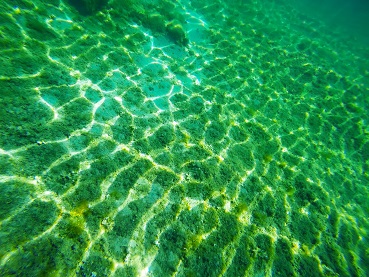Plankton as a biological sensor for climate change

Related topics
Environment & climate action Innovation Italy United Kingdom Environment Norway Russian Federation South Africa Brazildate: 30/10/2015
Project: Development of global plankton data base...
acronym: GreenSeas
See also: CORDIS
Plankton is not only the foundation of the marine food chain – it is also a major fixer of carbon dioxide and the world’s primary producer of oxygen. Any environmental changes that affect it, potentially affect us all. Phytoplankton, for example, is responsible for half of the carbon dioxide that is naturally removed from the atmosphere and is the primary food source for the zooplankton on which all other marine organisms feed, directly or indirectly.
“Whatever happens to plankton has a cascading effect throughout the marine ecosystem, and potentially on the global environment,” explains Kjetil Lygre of the Nansen Environmental and Remote Sensing Center in Norway.
As project manager of the EU-funded GreenSeas project, Lygre helped oversee a landmark initiative to collect and analyse data on marine plankton from the Arctic, Atlantic and Southern oceans. Bringing together researchers from Europe, Brazil, Russia and South Africa, the GreenSeas consortium collected quantitative measurements of plankton responses to climate change in marine ecosystems to develop a global plankton database and modelling system.
Using state-of-the-art web-based data delivery systems, GreenSeas has made available both new and historical plankton data, information products and numerical simulations following the open and free data access policy implemented in the EU’s Copernicus Programme.
The project has also made significant contributions to the establishment of the European Marine Observation and Data Network and the United Nation’s Global Climate Observing System, providing data on ocean temperature, salinity and ocean colour as a marker of biological activity as well as carbon dioxide, carbon, nutrient and phytoplankton levels.
A GreenSeas Summer School held in South Africa helped PhD students learn how to use Earth observation data, environmental indicators and numerical simulations to obtain an integrated and cross-disciplinary understanding of global planktonic ecosystems.
Capturing the data
The team used a combination of observation data, numerical simulations and cross-disciplinary synthesis to develop a high quality, harmonised and standardised plankton and plankton ecology long time-series, data inventory and information service. Using historical data and information from ongoing ocean ecosystem monitoring programmes, they captured latitudinal gradients of species biodiversity from the poles to the tropics and biogeographical distributions of plankton species.
Applying mathematical modelling and analysis to the data allowed GreenSeas’ scientists to generate simulations of phytoplankton behaviour in response to environmental stimuli, identifying, for example, how even small changes in phytoplankton mass and distribution can lead to significant changes in fish populations.
“Though there is still debate about the cause and effects, it is becoming clear that the inherent processes, feedback mechanisms and interactions involved in climate change can have unprecedented and dramatic impacts on marine ecology,” Lygre says. “By analysing the complex and diverse mass of data on planktonic marine ecosystems we are able to identify patterns and trends, and present the information in a way that can be more easily interpreted by stakeholders and policymakers.”
Since the project ended last year, the partners are continuing to work on the results and will maintain the GreenSeas database web-server for at least five years, providing open access to information on planktonic marine ecosystems to other researchers and policymakers. In addition, Lygre says a follow-up project aimed at further refining their research is being discussed.
